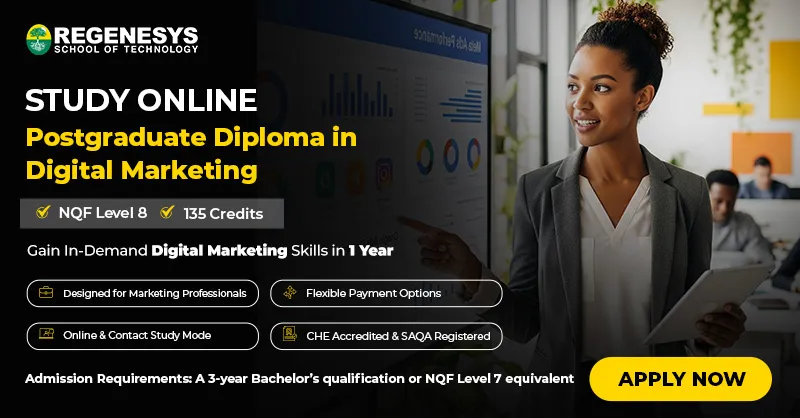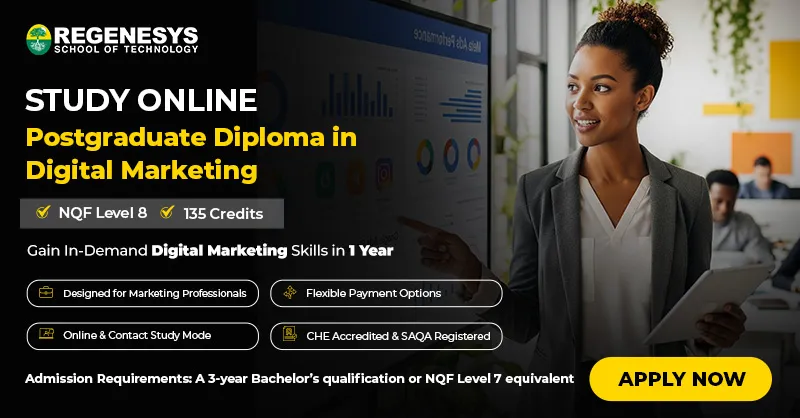A Public Relations Manager is a professional who ensures that an organisation or individual maintains a positive public image. They oversee communication with the media, customers, and stakeholders, ensuring that every message reflects credibility and supports the organisation’s reputation.
In the current scenario, where digital communication significantly influences public opinion, public relations has become a vital component of business strategy. A single post or press release can significantly influence how a brand is perceived, making the role of a Public Relations Manager both strategic and essential.
This article outlines the primary roles, responsibilities, and Public Relations Manager skills needed to succeed in this profession. It also explains how pursuing a Postgraduate Diploma in Digital Marketing can help professionals strengthen their communication expertise and advance their PR careers.
Table of Contents
What Is a Public Relations Manager?
A Public Relations (PR) Manager oversees communication between an organisation and its audience. These include media outlets, customers, investors, and employees. Their goal is to shape public opinion and ensure consistent messaging. However, it needs to align with the organisation’s values and goals.
While PR officers handle day-to-day communication tasks, the Public Relations Manager sets the strategic direction and ensures that campaigns deliver measurable outcomes. The manager often supervises PR teams, agencies, and content creators, ensuring a uniform communication strategy across all channels.
When we research the question, “What is a Public Relations Manager?”, we understand that they are employed in diverse sectors. These include corporate business, government, non-profit organisations, media, healthcare, and education. In each setting, they play a critical role in safeguarding the organisation’s reputation, maintaining transparency, and fostering public trust.
Read more on What is a PG Diploma in Digital Marketing? Smart Choice for the Modern Marketer

The Role of a Public Relations Manager
The role of a Public Relations Manager extends beyond media relations. They act as strategic advisors, guiding leadership on public perception and communication best practices.
Their primary focus is to ensure that every public statement or campaign supports the organisation’s broader mission. However, they must align PR activities with marketing and corporate goals.
Their role includes:
- Crafting and implementing long-term communication strategies.
- Advising executives during media interviews or press briefings.
- Managing both planned campaigns and unexpected crises.
- Monitoring public sentiment and brand mentions across digital platforms.
Read more on PGDip in Digital Marketing: Practical Skills for the Modern Marketer
Core Responsibilities of a Public Relations Manager
A PR Manager performs a wide range of duties designed to protect and enhance an organisation’s image. Their responsibilities can be grouped into strategic communication, media relations, and stakeholder management.
Listed below are some responsibilities of a PR Manager:
- Developing PR Campaigns and Strategies: Creating communication plans that support organisational objectives and ensure positive media visibility.
- Media Relations: Building relationships with journalists, editors, and influencers to gain favourable press coverage.
- Press Releases and Public Statements: Writing and approving press materials that convey the organisation’s position accurately.
- Social Media Management: Overseeing online communication to ensure consistent messaging across platforms.
- Crisis Communication: Managing communication during sensitive or negative events to protect the organisation’s credibility.
- Event Coordination: Organising press conferences, product launches, and corporate events to engage stakeholders.
Read more on Public Relations Manager Salary in South Africa: Know What to Expect

Essential Public Relations Manager Skills
Success in this field requires a well-balanced mix of both soft and technical skills. The most accomplished Public Relations Managers demonstrate exceptional communication skills, strategic thinking, and the emotional intelligence needed to handle complex professional scenarios.
Below are the core Public Relations Manager skills that define excellence in the profession:
- Communication and Writing: Crafting press releases, speeches, and official statements with clarity, precision, and a consistent tone.
- Strategic Thinking: Designing campaigns that align communication objectives with the broader goals of the organisation.
- Media Relations: Building and maintaining relationships with journalists, editors, and media outlets to secure meaningful coverage.
- Crisis Management: Managing sensitive situations and reputational risks with calmness, transparency, and professionalism.
- Creativity: Developing innovative campaign ideas that capture public attention and reinforce brand values.
- Emotional Intelligence: Understanding public sentiment, empathising with audiences, and maintaining composure during high-pressure moments.
To refine these skills and stay relevant in a digitally driven communication environment, professionals can benefit from structured learning. The Postgraduate Diploma in Digital Marketing offered by Regenesys Business School combines communication strategy with digital expertise.
This programme equips aspiring PR managers with practical knowledge in online brand management, digital storytelling, and media engagement. These skills are required for success in modern public relations.
Where Can Public Managers Work?
Public Relations Managers are versatile professionals who can work in nearly any industry that values communication and reputation management. Their ability to craft messages, manage media, and maintain public trust makes them indispensable across sectors.
Below are some of the most common workplaces for PR Managers:
- Corporate organisations: Manage brand image, media relations, and investor communication.
- Government departments: Handle public information, community outreach, and policy communication.
- Non-profit organisations: Promote campaigns, raise awareness, and manage donor relations.
- Media and entertainment: Coordinate publicity, manage talent communication, and organise events.
- PR and marketing agencies: Deliver communication strategies and media management for various clients.
Read more on Postgraduate Diploma in Digital Marketing Careers: Advantages and How It Can Boost Earnings!

Conclusion
Understanding what a Public Relations Manager does reveals how vital communication is to organisational success. From crafting strategic campaigns to handling crises with confidence, PR managers serve as the voice and conscience of their brands.
Developing the right Public Relations Manager skills requires continuous learning, practical experience, and strategic thinking. If you aspire to lead communication in the current digital era, consider pursuing the Postgraduate Diploma in Digital Marketing with Regenesys Business School.
Visit the Regenesys Education website to enrol in our accredited programme today!
What Is a Public Relations Manager – FAQ
What is a Public Relations Manager?
A PR Manager is a communication expert who manages an organisation’s image, media relations, and public messaging to build and maintain a positive reputation.
What does a PR Manager do daily?
A Public Relations Manager oversees communication strategies, drafts press materials, coordinates with media, and manages public messaging.
What qualifications do I need to become a PR Manager?
A bachelor’s degree in communication, marketing, or journalism is typically required. A postgraduate qualification, such as the Regenesys Postgraduate Diploma in Digital Marketing, strengthens career prospects.
What are the main responsibilities of a PR Manager?
Their duties include developing communication strategies, managing media relations, writing press releases, handling crises, coordinating events, and ensuring consistent public messaging.
What are the most important PR Manager skills required to excel?
Strong communication, writing, strategic thinking, creativity, media relations, crisis management, leadership, and emotional intelligence are key skills for success in this role.







